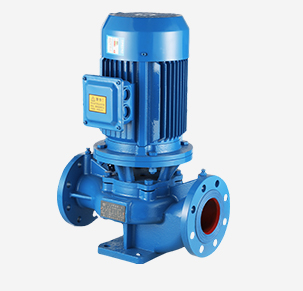English
- Afrikaans
- Albanian
- Amharic
- Arabic
- Armenian
- Azerbaijani
- Basque
- Belarusian
- Bengali
- Bosnian
- Bulgarian
- Catalan
- Cebuano
- Corsican
- Croatian
- Czech
- Danish
- Dutch
- English
- Esperanto
- Estonian
- Finnish
- French
- Frisian
- Galician
- Georgian
- German
- Greek
- Gujarati
- Haitian Creole
- hausa
- hawaiian
- Hebrew
- Hindi
- Miao
- Hungarian
- Icelandic
- igbo
- Indonesian
- irish
- Italian
- Japanese
- Javanese
- Kannada
- kazakh
- Khmer
- Rwandese
- Korean
- Kurdish
- Kyrgyz
- Lao
- Latin
- Latvian
- Lithuanian
- Luxembourgish
- Macedonian
- Malgashi
- Malay
- Malayalam
- Maltese
- Maori
- Marathi
- Mongolian
- Myanmar
- Nepali
- Norwegian
- Norwegian
- Occitan
- Pashto
- Persian
- Polish
- Portuguese
- Punjabi
- Romanian
- Russian
- Samoan
- Scottish Gaelic
- Serbian
- Sesotho
- Shona
- Sindhi
- Sinhala
- Slovak
- Slovenian
- Somali
- Spanish
- Sundanese
- Swahili
- Swedish
- Tagalog
- Tajik
- Tamil
- Tatar
- Telugu
- Thai
- Turkish
- Turkmen
- Ukrainian
- Urdu
- Uighur
- Uzbek
- Vietnamese
- Welsh
- Bantu
- Yiddish
- Yoruba
- Zulu
Telephone: +86 13120555503
Email: frank@cypump.com
Dec . 11, 2024 05:02 Back to list
Essential Guide to Septic Tank Pumping and Maintenance Tips for Homeowners
Understanding Septic Tank Pumping Importance, Process, and Maintenance
Septic tanks are essential systems for homes not connected to municipal sewer lines. These underground chambers treat wastewater by relying on natural processes to break down solids. However, to function effectively, septic tanks require regular maintenance, including periodic pumping. This article explores the importance of septic tank pumping, the process involved, and key maintenance tips to ensure your system remains efficient.
Importance of Septic Tank Pumping
Septic tanks are designed to separate solids from liquids and treat wastewater. Over time, solids accumulate at the bottom of the tank, forming sludge, while lighter materials like grease and oil float to the top, creating scum. If the tank is not regularly pumped, the accumulation of these materials can lead to several issues
1. Clogged Pipes When sludge and scum levels rise too high, they can clog the inlet and outlet pipes. This blockage can cause wastewater to back up into the home, potentially leading to unpleasant and costly sewage backups.
2. System Failure A neglected septic tank may lead to system failure, where the entire system can no longer adequately treat wastewater. This can result in expensive repairs or the need for complete replacement, which can be financially burdensome.
3. Environmental Impact Overfilled tanks can cause leaks and overflow, leading to sewage contamination of groundwater or nearby water bodies. This can pose health risks to the community and wildlife, emphasizing the need for responsible septic tank maintenance.
4. Cost Efficiency Regular pumping and maintenance can extend the life of your septic system, saving you money in the long run by avoiding costly emergency repairs.
The Pumping Process
The process of pumping a septic tank is typically straightforward, but it’s essential to hire a licensed and experienced professional to ensure it is done correctly. Here's a step-by-step overview of what happens during a typical pumping
1. Assessment The technician will first assess the condition of the septic tank and its components. This includes checking the inlet and outlet baffles, as well as the overall tank integrity.
septic tanks pumping

3. Pumping A vacuum truck is used to pump out the tank's contents. This includes removing the sludge and scum layers, ensuring that the tank is emptied as thoroughly as possible.
4. Cleaning After pumping, the technician may clean the tank’s interior to remove any residual materials that could cause future buildup.
5. Inspection Finally, a thorough inspection is conducted to identify any signs of damage or wear in the tank and associated components, ensuring that any potential issues are addressed promptly.
Maintenance Tips
Regular maintenance is key to a functioning septic system. Here are some helpful tips
1. Regular Pumping Schedule Generally, homeowners should pump their septic tanks every three to five years, depending on the size of the tank and household usage. Larger households or heavy water usage may require more frequent pumping.
2. Mindful Water Use Reducing water usage can significantly ease the load on your septic tank. Fix leaks, take shorter showers, and only run dishwashers or washing machines with full loads.
3. Avoid Flushing Non-Biodegradables Items such as wipes, feminine hygiene products, and cooking oils should never be flushed or poured down the drain as they can lead to system clogs.
4. Plant Management Be cautious about planting trees or large shrubs near the septic system as their roots can invade and damage the septic components.
5. Professional Inspections Schedule regular inspections with a septic service provider to catch any potential problems early. This proactive approach can save money and preserve the efficacy of the system.
Conclusion
Septic tank pumping is a critical aspect of maintaining an efficient wastewater treatment system for homes outside urban sewer lines. Regular pumping and conscientious maintenance can prevent costly repairs, protect the environment, and ensure your home's plumbing system functions seamlessly. By being proactive and understanding the importance of your septic system, you can keep it running smoothly for years to come.
-
ISG Series Vertical Pipeline Pump - Chi Yuan Pumps Co., LTD.
NewsJul.30,2025
-
ISG Series Vertical Pipeline Pump - Chi Yuan Pumps Co., LTD.|energy-efficient fluid handling&industrial durability
NewsJul.30,2025
-
ISG Series Vertical Pipeline Pump - Chi Yuan Pumps | Advanced Engineering&Industrial Efficiency
NewsJul.30,2025
-
ISG Series Pipeline Pump - Chi Yuan Pumps | High Efficiency, Energy Saving
NewsJul.30,2025
-
ISG Series Vertical Pipeline Pump-Chi Yuan Pumps|High Efficiency&Reliable Performance
NewsJul.29,2025
-
ISG Series Vertical Pipeline Pump|High Efficiency&Low Noise
NewsJul.29,2025










